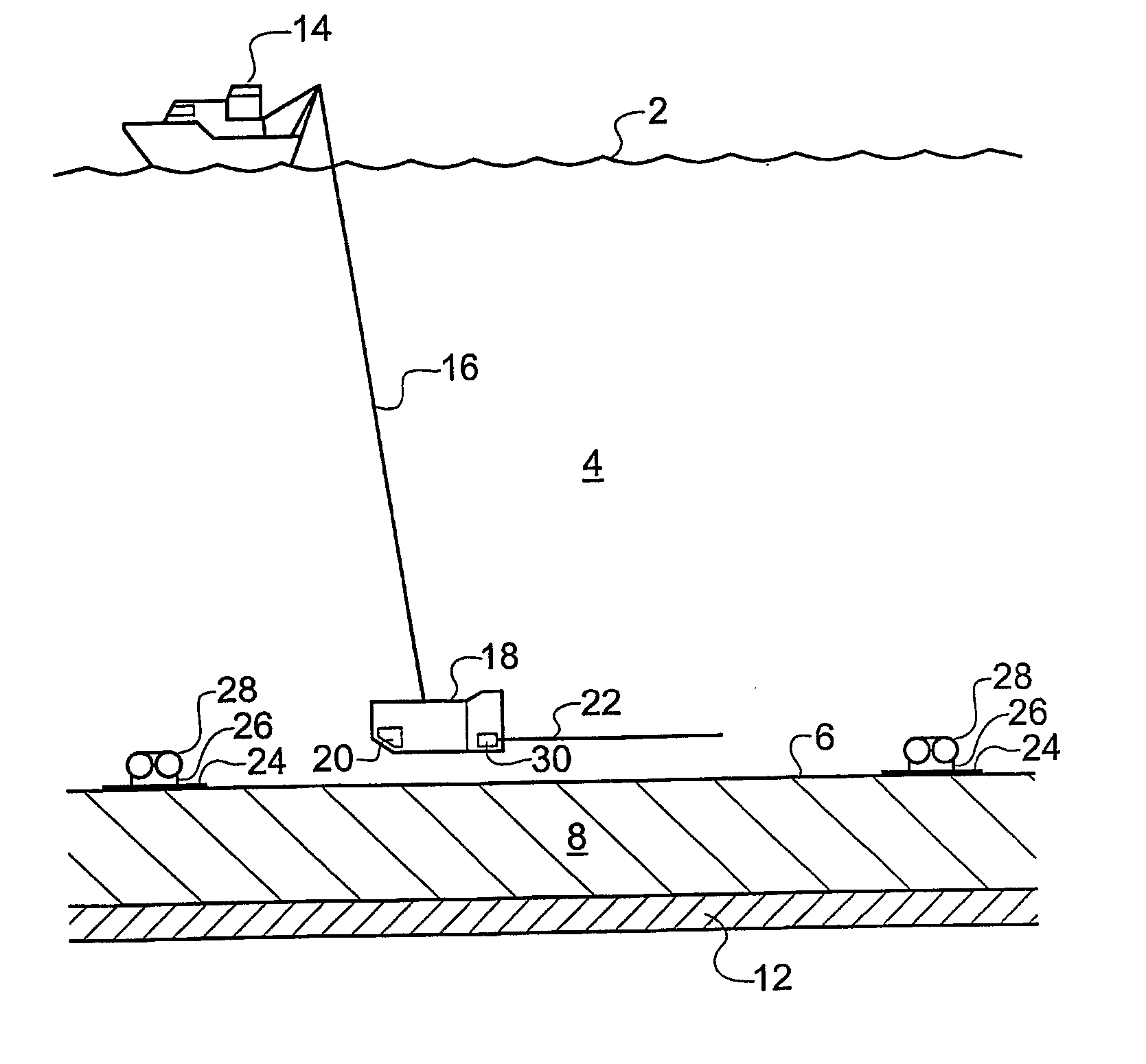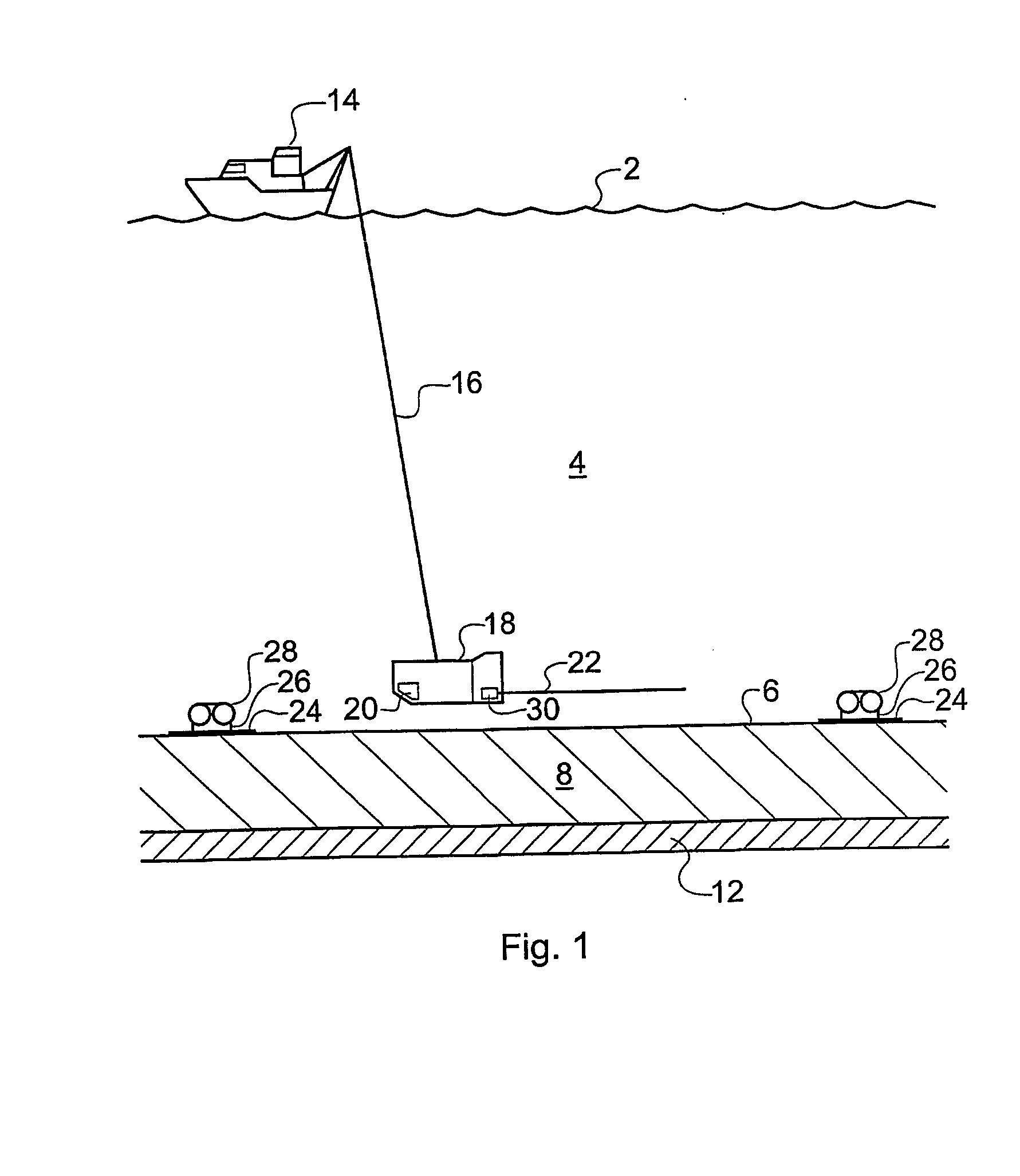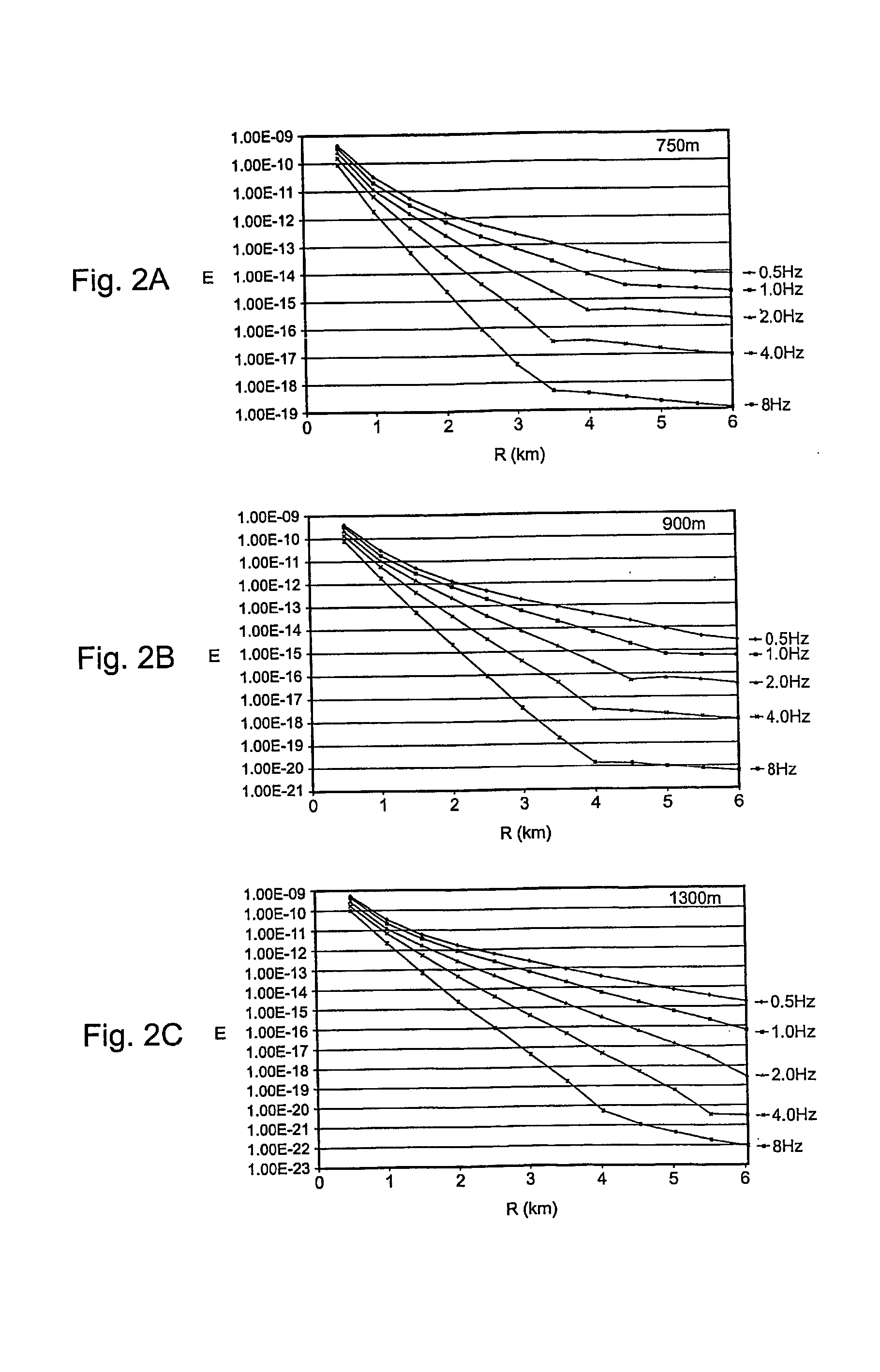Electromagnetic surveying for hydrocarbon reservoirs
a hydrocarbon reservoir and electromagnetic surveying technology, applied in the field of seafloor electromagnetic surveying, can solve the problems of inability to collect survey data highlighting only galvanic contributions in end-on geometry, and the previously proposed electromagnetic survey methods for finding hydrocarbon reservoirs are at best highly unreliabl
- Summary
- Abstract
- Description
- Claims
- Application Information
AI Technical Summary
Benefits of technology
Problems solved by technology
Method used
Image
Examples
Embodiment Construction
[0050]FIG. 1 of the accompanying drawing shows schematically a surface vessel 14 undertaking EM sounding of subterranean rock strata 8 within which a hydrocarbon reservoir 12 is located. The surface vessel 14 floats on the surface 2 of the sea 4. A deep-towed vehicle 18 is attached to the surface vessel 14 by an umbilical cable 16 which provides an electrical, optical and mechanical connection between the deep-towed vehicle 18 and the surface vessel 14. The deep-towed vehicle 18 is towed by the surface vessel 14 such that it remains consistently close to the seafloor 6. This is facilitated by an echo-location package 20 which relays information about the height of the deep-towed vehicle 18 above the seafloor 6 to the surface vessel 14. The deep-towed vehicle 18 receives electrical power from the ship's on-board power supply via the umbilical cable 16.
[0051] A cycloconverter unit 30 generates the chosen waveform to be supplied to an EM source in the form of a transmitting antenna 22...
PUM
 Login to View More
Login to View More Abstract
Description
Claims
Application Information
 Login to View More
Login to View More - R&D
- Intellectual Property
- Life Sciences
- Materials
- Tech Scout
- Unparalleled Data Quality
- Higher Quality Content
- 60% Fewer Hallucinations
Browse by: Latest US Patents, China's latest patents, Technical Efficacy Thesaurus, Application Domain, Technology Topic, Popular Technical Reports.
© 2025 PatSnap. All rights reserved.Legal|Privacy policy|Modern Slavery Act Transparency Statement|Sitemap|About US| Contact US: help@patsnap.com



